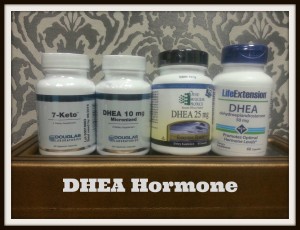
by admin | Nov 30, 2012 | Doctors Perspective
DHEA: Dehydroepiandrosterone
After the age of 40, stresses of life can impair your ability to make sufficient DHEA. DHEA is important to make other hormones in the body, for healthy immune function, muscle and bone strength, maintaining energy and for keeping the belly flat. One should have their DHEA level checked by an Anti-Aging professional and if levels are low receive adequate doses to achieve a healthy level [too little and too high can both be harmful]. ~ Dr. M

by admin | Oct 31, 2012 | Doctors Perspective
The Glycemic Index (GI) relates to the way your body’s sugar levels respond to certain foods.
Low Glycemic Index eating avoids causing spikes in blood insulin levels. A low GI diet has several advantages:
-
-
-
- There is no starving involved
- Cravings (especially for sweets) are decreased dramatically
- Serum cholesterol levels normalize and weight loss is easy for most who follow it
- Proteins stay healthier longer- and this slows the aging process
- There is an increase in fat burning- especially between meals
- No calorie counting, portion control, or weighing and measuring foods are necessary- just choose your meals and snacks from the Low Glycemic Index lists
Here are some helpful links:
* http://www.lowcarbiseasy.com/dietplanlowgi.htm
* http://www.lowglycemicdiet.com/gifoodlist.html
It is not a ‘Low Carb’ diet. It is a healthy carb diet. ~ Dr. Sinda

by admin | Sep 25, 2012 | Doctors Perspective
Avoiding Migraines Before Your Period
Many women complain of headaches a day before their period and a few days into the period. This poorly understood phenomenon is actually due to the estrogen crash which occurs at that time. We have found that a small amount of natural estrogen cream very frequently provides relief from this dreaded “headache”. ~ Dr. M

by admin | Sep 25, 2012 | Doctors Perspective
During Breast Cancer Awareness Month, we should not only focus on the cure but also on PREVENTION:
Natural progesterone in a woman’s body prevents breast cancer. A large Johns Hopkins study showed a tenfold increase in cancer deaths in progesterone deficient women. Women with PMS or in menopause often have progesterone deficiency, which should be identified by blood tests and treated with natural progesterone. Artificial [drug] progesterone is chemically different from natural progesterone and actually increases the risk of breast cancer. It should be avoided.

by admin | Sep 25, 2012 | Doctors Perspective
The 3 real pillars of health are: adequate exercise, proper nutrition and high quality sleep.
Even though hormone imbalances are a common cause of sleeping problems and need to be addressed, there are other things that you should do to try to help maximize the quality of your sleep. These are especially important if sleeping is a problem for you.
Go through this list and see where you are doing a good job… and where you need to make some changes. Your good health depends on it in many ways.
- Stick to same sleep-wake schedule (bedtime and wake time) 7 days a week.
- Avoid napping unless you can nap at the same time every day and for the same length of time.
- Unwind 30 minutes before bedtime, avoiding stimulating activities such as computer work (or email), TV, talking on the phone or texting, and working around the house. Also keep the lights low and the volumes of TV/music down for the last 2-3 hours before bedtime.
- Try to keep distracting electronic gadgets out of the bedroom and maintain a tidy, cool, dark environment.
- Avoid any caffeine after 2:00 PM (after noon if sleep is a big problem)
- Avoid alcohol in the 2-3 hours prior to going to bed.
- Keep your meal times and exercise times as regular as possible- bodies love regimented schedules.
- Make sure your window coverings keep all the light out- bodies use light as a cue in melatonin production. There are very inexpensive shades that do a great job at this.
- Minimum sleep time should be 7 hours but if you can sleep 8 or more- by all means do so.
Sleep well!
-Dr. Rich Sinda @Innovative Directions in Health

by admin | Aug 31, 2011 | Doctors Perspective
What is DHEA and why is it so important to have in our bodies?
Dehydroepiandrosterone, also known as DHEA, is a natural steroid hormone. It is the major secretory steroidal product of the adrenal glands. It is also produced by the gonads and the brain.
DHEA is the most abundant circulating steroid in our body. Low levels of DHEA in our body can affect: memory, physical performance, muscle loss, infertility and reproduction, longevity, and can also cause depression, increase risk of cardiovascular disease, cancer and diabetes.
Supplements of DHEA may be taken under the supervision of a medical doctor. Too much DHEA in our body is not always a good thing. DHEA releases small amounts of estrogen and for women testosterone, therefore DHEA blood levels need to be monitored closely. Having optimal levels of DHEA will bring back zest and vitality that men and women have lost throughout the years.
If you are interested in talking more about your DHEA levels or how DHEA fits into our bio-identical hormone programs please contact us.
Learn more online about DHEA and how it relates to: metabolism, osteoporosis, aging, cortisol, menopause, cardiac health and more here.






